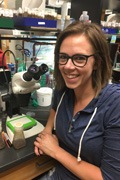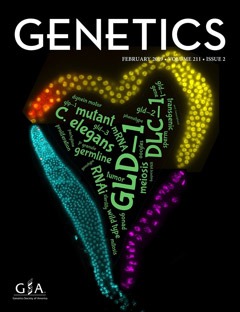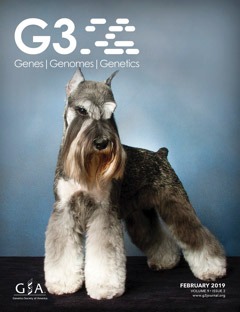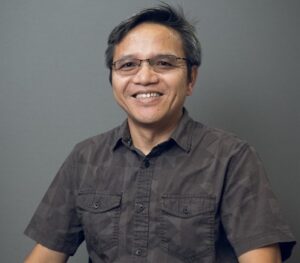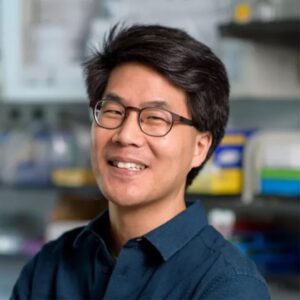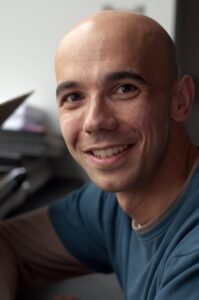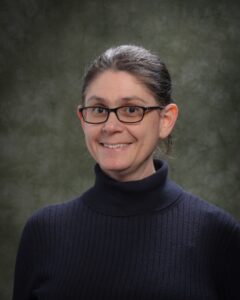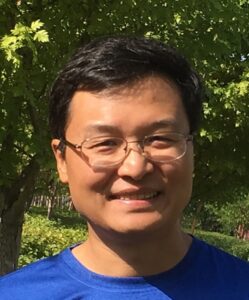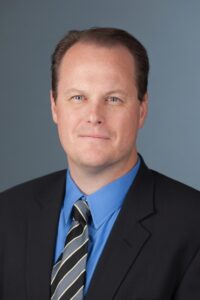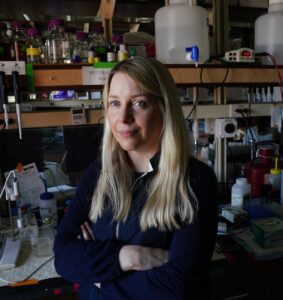2024 Fly Board Election Candidates and Ballot
To cast your vote, you will need to create an account or log in at the link below using an email address and password. This helps the Fly Board ensure a fair election. You do not need to have an active GSA membership to vote in the election.
- View the candidates’ statements.
- Click the “Access Ballot” button below. The page will open in a new tab.
- Click “Log-in” in the upper right corner.
- Log into your account.
- Click on “More” under the heading “2024 Fly Board Election.“
- Click “Apply” Be sure to choose “Applicant” as your role.
- Vote for your chosen candidates.
- Click “Mark as Complete.”
You will receive an email confirming your ballot has been submitted (please check the spam folder). If you have technical difficulties, email society@genetics-gsa.org.
Deadline to vote: February 9, 2024, 11:59 p.m. EST.
Access Ballot
Candidate Statements and Biographical Information
Read each candidate’s statement and biographical information at the links below. Return to this list using the “Return to Top” links.
Representatives
Vote for one in each section
Canada Region Representative
Great Lakes Region Representative
Southeast Representative
Heartland Region Representative
Midwest Region Representative
Wu-Min Deng
Professor, Tulane University
Candidacy Statement
Wu-Min Deng earned his PhD in 1998 from the University of Edinburgh in the UK, specializing in the study of oogenesis and follicle cell patterning in Drosophila under the guidance of Mary Bownes. His fascination with fruit flies began even earlier during his MSc studies at the Shanghai Institute of Cell Biology, Chinese Academy of Sciences.
Following the completion of his postdoctoral training with Hannele Ruohola-Baker at the University of Washington in Seattle, where he focused on Notch signaling and germline-soma interaction in the ovary, Wu-Min Deng established his independent lab at Florida State University in 2003. There, his group delved into various Drosophila tissue models, exploring cell polarity, polyploidy, as well as cell competition. They also developed models to investigate tumor initiation in Drosophila. Subsequently, in 2019, his lab relocated to Tulane University School of Medicine in New Orleans.
Presently, Wu-Min holds the position of a Gerald & Flora Jo Mansfield Piltz Endowed Professor in Cancer Research and is a member of the Louisiana Cancer Research Center. His research focuses on various aspects of tumorigenesis and tumor-host interactions, utilizing the fly tumor models cultivated in his lab. Noteworthy contributions from his group include introducing novel concepts like tissue “tumor hotspots,” “compensatory cellular hypertrophy,” and identifying new components and mechanisms in Notch and Hippo signaling. He has successfully secured substantial funding from NCI, NIGMS, and NSF. In addition to his achievements in funding, he has been honored with several awards, including the Developing Scholar Award, Honors Thesis Mentoring Award, and the Faculty Research Award (Basic Science) at both FSU and Tulane, respectively.
Wu-Min actively engages with the fly community, demonstrating his commitment through the organization of workshops at Annual Drosophila Research Conferences. Furthermore, he co-organized the Polyploidy Across the Tree of Life and the Jiujiang fly meetings, and played a key role in initiating and organizing community fly meetings in Florida (‘Fly Masters’) and Louisiana (‘Fly Bayou’). The impact of these efforts is evident, as the ‘Fly Bayou’ community has expanded to include labs from multiple cities in Louisiana, as well as from Arkansas, Arizona, Nevada, Oklahoma, and Florida. In addition, Wu-Min edited a book titled “Drosophila Model in Cancer” and serves as a standing member of the NIH Dev-2 Study Section. He passionately advocates for research using the Drosophila model system and is actively involved in training young biologists. Currently, he holds the position of the Southeast Representative on the Drosophila Board.
Eric Lai
Professor, Memorial Sloan Kettering Institute
Candidacy Statement
I started my career in Drosophila exactly 30 years ago. I trained in molecular genetics during my PhD with Jim Posakony at UC San Diego and my postdoc with Gerry Rubin at UC Berkeley. During this time, I studied classical topics in developmental biology, including Notch signaling and transcriptional regulation in neural development. These projects also led to new regulatory paradigms, including general insights into miRNA mechanisms, before miRNAs had been identified as a class. My personal experiences convinced me that anyone, from the titans to fellow grad students, could harness the power of Drosophila to unveil fundamental principles. I found the democratic nature of this model organism invigorating.
Since starting my lab at Sloan Kettering Institute in 2005, I have been fortunate to work alongside stellar trainees at all levels, whose efforts led us into myriad scientific questions, disciplines and models. These include the biogenesis pathways of small regulatory RNAs, the biology of miRNAs in development and behavior, alternative mRNA processing strategies that diversify the transcriptome, the language of RNA modifications, a structurally novel family of DNA binding domains, and insidious selfish meiotic drive elements that meddle with gametogenesis. While many group members use mammalian systems, all of these projects were founded in Drosophila, which continues to be our discovery playground.
Our research has always been aided by the fly community’s legendary commitment to resource sharing, and reciprocally, our lab has fulfilled hundreds of reagent requests over the years. Equally critical has been our reliance on public resources and knowledge bases (FlyBase, Bloomington Stock Center/VDRC, DGRC, Gene Disruption Project, Interactive Fly, etc.). While in the Rubin lab, I had a front-row seat to the catalytic power of community resources with sequencing of the D. melanogaster genome by the BDGP, for which primary data was submitted to GenBank weekly. As a new PI, I was one of the lead investigators within the modENCODE consortium, which collectively generated >1000 genomewide datasets as a community resource. A decade after the conclusion of modENCODE, I am proud that our contributions of small RNA data and substantially revised gene models remain in broad and continual usage.
An important component of this position is to advocate for funding to maintain our Drosophila databases and community projects. I have substantial experience on both sides of the NIH granting system, serving as ad hoc and standing study section member, and having been funded by five different Institutes, and renewed at several. I will draw on this experience for this endeavor. In addition, I believe the vitality of our field depends not only on Drosophila researchers supporting each other, but also by increasing awareness of model organisms amongst young and diverse students. I am interested to explore how Drosophila researchers might engage curious minds and increase public outreach. This can only pay dividends down the line not only for our field, but also may help stem the corrosive effects that denial of science has caused during the pandemic.
I have met hundreds of fly folks across all stages of their journey in science, and consider myself an eternal student with broad interests in Drosophila research and techniques. I continue to be astounded by what this remarkable animal model can teach us. I would be privileged to represent and advocate for our community.
Rodrigo Fernandez-Gonzalez
Professor, University of Toronto
Candidacy Statement
I am Professor in the Institute of Biomedical Engineering at the University of Toronto, cross-appointed to the Department of Cell and Systems Biology. My research program investigates the mechanical and biochemical signals that coordinate cell behaviors during embryonic development and tissue repair, using quantitative microscopy, image analysis, computer modelling, and genetic, biophysical and pharmacological manipulations in the Drosophila embryo.
My interest in image analysis began as an undergraduate studying Computer Engineering at the Universidad Autonoma de Madrid, in Spain. Looking for interesting images I moved to the Bay Area, where I conducted my Ph.D. in Bioengineering at UC Berkeley and UCSF, working on computational microscopy methods to image the mouse mammary gland. It was during my Ph.D. that I fell in love with microscopy and epithelial morphogenesis, and decided that the fly embryo was the ideal system to investigate the questions that I was interested in. I then moved to New York, to conduct postdoctoral work with Jen Zallen, at the Sloan-Kettering Institute, where I found how mechanical signals regulate the dynamics of the cytoskeleton and contribute to the coordination of cellular behaviors during Drosophila axis elongation. We have continued this line of work in my lab, focusing on the collective cell movements that drive the rapid and scarless embryonic wound healing response. Most recently, we expanded our work to investigate the mechanisms of collective cell migration during embryonic heart development (with some surprises in the form of myosin waves!), and the importance and mechanisms of cell volume regulation in epithelial morphogenesis.
Since starting my lab in 2012, I have regularly attended the Annual Drosophila Research Conference (ADRC). I have co-organized the Developmental Mechanics workshop at the ADRC over the last ten years, trying to highlight the diversity of our community and to create a friendly environment that facilitates the exchange of ideas. I also contribute to my local Drosophila community as a co-organizer of the biweekly Toronto Fly Group meeting. In 2019, I co-chaired the Organizing Committee of the Canadian Drosophila Research Conference. In that role, I had the opportunity to familiarize myself with many of the Canadian fly labs that work in areas different from mine. I continue to be amazed by the breadth and strength of the Canadian Drosophila community.
The Drosophila community has been extremely welcoming and supportive. I find this particularly remarkable in my case, as my training is very different from most of my colleagues. And yet, that difference has always been celebrated. I am now looking forward to giving back to the community as the Canadian representative to the Fly Board.
Edan Foley
Professor, University of Alberta
Candidacy Statement
My fly journey started in the lab of Dr. Frank Sprenger at the University of Cologne, where I completed a PhD in cell cycle regulation. In Cologne, I worked with an engaged research community that ignited my passion for flies as a discovery vehicle. From there, I was fortunate to join the lab of Dr. Patrick O’Farrell at UCSF as a postdoctoral fellow, where I made my first steps towards using flies to understand innate immune signaling. Throughout my time in UCSF, I encountered a research environment that transcended disciplinary barriers in favor of discovery-driven research. From there, I moved to the University of Alberta in Canada where my group explores links between immune signals and intestinal homeostasis in flies.
For me, the fly gut community encapsulates all that is good about Drosophila research. I am struck by how this field makes such imaginative use of a relatively simple epithelium to ask foundational questions about cell or developmental biology. As is so often the case with fly researchers, groups working with the gut happily share reagents, support each other’s progress, and advocate for the inherent value of discovery. At the outbreak of the COVID pandemic, I had the opportunity to co-host a virtual seminar series that brought this group together to present new or recent discoveries. I drew inspiration from the many scientists willing to share their work and was grateful for the opportunity to support emerging talent.
Outside of my own group, I am primarily interested in EDI initiatives that break all barriers to participation in science, and in providing professional development and mentorship to trainees and established investigators. The Fly Board has a tradition of fostering talent, and I feel a focus on equity and professional support will benefit all of us.
Laura Palanker Musselman
Professor, State University of New York, Binghamton
Candidacy Statement
I have been a Drosophila researcher for over 20 years and an educator for ten years. As fate would have it, I started my training as a PhD student focusing on the developing embryonic neuromuscular junction with Kendal Broadie and Emma Rushton at the University of Utah. When the Broadie lab moved, I joined Carl Thummel’s lab, where I studied the role of nuclear receptors in larval development and during metamorphosis. Under the mentorship of Carl and others in the lab, I became interested in metabolism and physiology. So, as a postdoc, I worked with Tom Baranski and Ross Cagan to develop and explore models of human disease, especially diet-induced obesity. These days, my lab and I focus on the biochemistry and pathophysiology that arises from overnutrition, mostly in adult flies.
I’m an Associate Professor of Biological Sciences and Biochemistry at Binghamton University, part of the State University of New York. As faculty, I have collaborated with researchers around the world and have contributed to interdisciplinary research, outreach, and teaching efforts across my institution and in the local community. Working in a basic science department at an R1 institution has enabled me to mentor those from different backgrounds and to serve on committees for hiring, budgeting, curriculum, and peer review of manuscripts and grants.
Although I don’t have much formal experience serving the Drosophila community, I’m eager to do so. You can often find me chatting at a Drosophila conference poster or sharing protocols or unpublished data by email. Some may recognize me from my YouTube video, “Drosophila hemolymph collection procedure,” or the platform session I co-chaired at the ADRC in 2023. The people and resources of the fly community have helped me and all of us grow, and now is a good time in my career to give back. As a Drosophila Board member, I would prioritize quickly getting up to speed on the current plans and seeing where I can fit in and best serve the community, given my skill sets, which include being frank, ethical, and attentive to detail and deadlines.
If asked to identify a platform on which to run for election, it would be “champion the underserved.” The folks I envision as needing our support the most are historically excluded people who may not feel comfortable in the spaces we occupy. As a neurodivergent tenured faculty member, I recognize the challenges in “being yourself” without masking identities like autism and ADHD. Although I’m a cis white heterosexual, I consider myself a progressive ally. I lived in inner-city St. Louis and was raised by a single mom, so I’m familiar with some of the challenges of being a minority, but don’t have the extra labor of being a minority. The burden of equity should fall on tenured, privileged people like me, and I’m prepared to work harder to serve the underprivileged in this position.
As a grad student, I was welcomed into this community and I’m still here. It’s an honor to be nominated and regardless of the outcome, I’ll continue to promote and encourage fellow “fly people” whenever and however I can.
Deepika Vasudevan
Assistant Professor, University of Pittsburgh
Candidacy Statement
I began working with Drosophila as a postdoctoral fellow, having first fallen in love with this model as a rotation student. And though I’ve technically been working with flies for nearly ten years now, any research using the Drosophila model still elicits the same awe in me as it did when I was a neophyte. I am now an Assistant Professor at the University of Pittsburgh, having started my lab at a time when the COVID19 pandemic was not quite over in June 2021. Predictably, this presented unconventional challenges and yet I have only fond memories of my early months as a new PI because of the support from the research community- colleagues in my department offered bench space, some shipped me reagents from across the country, and most memorably, fly biologists overseas somehow navigated the complex shipping landscape to send me stocks. My priority as a Fly Board representative will be to sustain and boost such comradeship, which I believe is an essential ingredient in the success of early career scientist such as myself.
The overarching goal of my research program is to gain fundamental understanding of why stress response factors are required for homeostatic functioning of some tissues, and how their mechanism of action changes during stress. My recent work has focused on selective mRNA translation downstream of stress response activation using a powerful combination of genetics and molecular biology. The two primary tissues my lab studies are the fat body and the retina. As I transitioned into my independent position, I looked to expand my lab’s tool kit. Again, the research community came to my aid, and I was able to establish live imaging and electrophysiology in my lab. All these efforts were also in no small part due to the innovators in the Fly community making the ever-expanding fly tool kit accessible to everyone.
In addition to my research efforts, I invest considerable resources in mentoring trainees from diverse backgrounds at all levels from high school to post-graduate. My trainees have a strong track record of research accomplishment as exemplified by co-authorships, and retention in science as indicated by their current pursuit of scientific research careers. I have also observed that regular attendance at the annual Fly Meeting to be a crucial ingredient for retaining talented trainees in science, making a strong case for increasing access to the meeting. As someone who has often benefitted from the culture of cooperative research and collaborative science, my goal as a member and representative of the Fly community is to ensure that the support I received is extended to all its young and future members. I hope to accomplish this by fostering open exchange of ideas and tools, inter-institutional mentoring programs, integrating research efforts across geographies, and most importantly ensuring inclusion of anyone who is united with us in the pursuit of knowledge.
Don Fox
Professor, Duke University
Candidacy Statement
I am a Professor of Pharmacology & Cancer Biology at Duke University. The goal of my research program is to study the biology of genomic extremes, namely whole genome doubling (polyploidy) and rarely used codons. While our work is founded in flies, we’ve collaborated with HIV clinicians, cardiologists, oncologists, plant biologists, and many more.
My love of Drosophila as a model system began in 2001 in Mark Peifer’s lab at UNC Chapel Hill, where I revealed a new role for the Abelson kinase in apical cell constriction during gastrulation. As a postdoc with Allan Spradling at the Carnegie Institute, I discovered polyploid cell division in the developing hindgut, and (with Vicki Losick) discovered examples of quiescent adult tissues that lack stem cells yet regenerate upon injury. Our lab has also built new research tools including DEMISE, a genetic system that enables study of genes required to repair a cell ablation injury.
Since 2011, our lab has focused on how polyploid cells re-wire genome maintenance mechanisms, how polyploidy productively regenerates injured tissues, and how specific tissues (the testis and brain) can uniquely express a proteome derived from rarely used codons. We’ve been supported by grants from 8 separate funding agencies-including the Pew Foundation, NIH, and even NASA! At Duke, I have received multiple forms of recognition for my student and postdoc mentoring.
My efforts in diversity and inclusion encompass multiple career stages. At the postdoctoral level, I established and led Duke Next Generation Leaders, a program aimed at assisting postdoctoral fellows from historically underrepresented backgrounds with the faculty search process. At the graduate level, as director of graduate studies of a large Genetics and Genomics umbrella program, I have been active in outreach efforts to advise and recruit prospective PhD students from underrepresented backgrounds about pursuing a biomedical PhD. I’m very passionate about mentoring new scientists and recruiting individuals from all walks of life into the next generation of researchers.
My lab has an annual presence at the Drosophila meeting, and I attended my first fly meeting in 2001. I have served previously on the GSA’s DeLill Nasser and Drosophila image award committees. More locally, with colleagues at Duke I helped to establish the Triangle Fly meeting, an annual gathering of fly researchers in North Carolina, South Carolina, and Virginia. I’d be honored to represent the southeast region on the Drosophila board. My goals would include advocating for funding support for model organism research, to communicate needs for better research tools, and to enhance connectivity and collaboration in our southeast region and beyond.
Jun-yuan Ji
Professor, Tulane University
Candidacy Statement
I am a professor in the Department of Biochemistry and Molecular Biology at the Tulane University School of Medicine in New Orleans. In my lab, we explore the role of the Mediator complex and Wnt signaling in the transcriptional regulation of lipid metabolism in Drosophila.
I grew up in a rural oasis in Xinjiang, located in the northwest of China. I received a B.Sc. in Cell Biology from Lanzhou University in 1994, focusing on the ultrastructure of the obturator in Allium Cepa L. for my thesis. Driven by my interest in developmental biology, I pursued an M.Sc. in Developmental Biology under the mentorship of Dr. Fang-Zhen Sun at the Institute of Genetics and Developmental Biology, Chinese Academy of Sciences, in 1997.
Under the tutelage of Dr. Gerold Schubiger at the University of Washington (1997-2003), my graduate training focused on analyzing the role of CDK1-Cyclin B in regulating the early embryonic cycles in Drosophila. As a postdoctoral fellow in Dr. Nicholas Dyson’s lab at the Massachusetts General Hospital Cancer Center (2004-2009), I studied the regulation of the key cell-cycle regulator E2F1 in Drosophila, leading to the discovery of CDK8-Cyclin C as a negative regulator of E2F1-dependent transcription.
During my tenure at Texas A&M University College of Medicine (2009-2021), my research expanded to explore CDK8 and other Mediator subunits using Drosophila as a model. We identified two new downstream targets of CDK8: SREBP (regulating lipid metabolism) and EcR (regulating developmental timing). In addition, we delved into the role of Wnt signaling in regulating lipid homeostasis in larval adipocytes, revealing that Wnt signaling promotes lipid mobilization through signal-induced transcriptional repression.
In March 2021, our lab relocated to Tulane University. A recent unexpected discovery revealed the involvement of the Mediator complex in maintaining telomere length by regulating telomeric retrotransposon transcription through E2F1-Dp and Scalloped/dTEAD. This discovery highlights the tight coupling of telomeric retrotransposon transcription and the host cell-cycle machinery, ensuring genomic stability during cell division in Drosophila. Regarding Wnt signaling, our current focus includes analyzing the mechanisms regulating adipocyte heterogeneity and the stability of ⍺-catenin.
I have actively participated in service activities, serving as a reviewer for organizations such as AHA (2013-2019) and DOD (2023). I have also contributed as an ad hoc reviewer for multiple NIH study sections, several local funding agencies, and various scientific journals. Beyond these activities, I co-chaired a session at the 59th Annual Drosophila Research Conference. Moreover, I served on the graduate admission committees at both Texas A&M and Tulane, participating to the selection and interview processes at each institution.
My scientific journey has been shaped by the extraordinary contributions of numerous ingenious and generous drosophilists. I am deeply grateful for the support I have received from colleagues in the Drosophila research community. Serving as a regional representative on the Fly Board for the Southeast states would be a great honor for me. In this role, my aim is to advocate for the immense value of Drosophila research, not only within the Drosophila community but also to wider audiences, including graduate, undergraduate, and high school students. It is also my goal to ensure the effective representation of my colleague’s voices and concerns in the Drosophila community of the Southeastern states.
Jocelyn McDonald
Associate Professor, Kansas State University
Candidacy Statement
Although I was a biochemistry major as an undergraduate, I became fascinated with genetics, cell biology, and developmental biology by my senior year. This led me to pursue a PhD in cell and developmental biology at the University of Illinois, Urbana-Champaign, in the lab of Chris Doe. From the start, I very much enjoyed working with Drosophila, using the power of fruit fly genetics to understand how cells are specified in the developing nervous system. I then went to the lab of Denise Montell for my post-doctoral training, staying with Drosophila, but now studying how and why cells move in collectives during development. This has ended up being a “fruitful” line of research, as I am still studying this intriguing problem in my own lab, now at Kansas State University. I feel strongly that Drosophila is a highly relevant model organism both for understanding the basic mechanisms of biology from the molecular to the organismal levels, but also for elucidating the conserved underpinnings of human health and disease. Through research, I am committed to training people from all backgrounds. I have trained over 25 undergraduate students and six graduate students in my lab, many of whom are women, first-generation students, and/or who identify as members of historically excluded groups. I am active in the Drosophila research community. I routinely review manuscripts for major journals, review grant applications for major research foundations including the NSF, and I serve on several journal editorial boards. My goal is to continue advocating for Drosophila research at the regional, national, and international levels, as well as to ensure that our community is inclusive and diverse.
Rob Unckless
Associate Professor, University of Kansas
Candidacy Statement
I grew up thinking that I would be a musician. In fact, I began college as a music major, then switched to education and was poised to be a history teacher. I took a distribution requirement one summer called the History of Evolution with Will Provine and it got me hooked on biology and evolution. I quickly switched gears, completed a master’s degree in science education and taught high school science for seven years. While I was teaching, I realized how much I enjoyed the discovery involved in research and completed a second master’s degree, this time in biology with a focus on freshwater ecology. I began my PhD at the University of Rochester with no idea I would eventually work with Drosophila. But, through a rotation experience, I became enthralled with the biology of flies, leading me to a dissertation co-advised by John Jaenike and Allen Orr. My path to flies went through evolutionary ecology, studying host/symbiont and host/pathogen interactions. I still love collecting wild flies and discovering the myriad pathogens and parasites they harbor. I moved to Cornell University of my PhD and was co-advised by Brian Lazzaro and Andy Clark. My work at Cornell was still inspired by evolutionary questions but became more molecular and more genomic. We focused on the selective pressures shaping the evolution of immune genes. As I became more involved in Drosophila research, I also became more enamored with the camaraderie of the community. I started a faculty position at the University of Kansas in 2016 and was promoted to Associate Professor in 2021. My lab focuses on three systems that developed from my PhD and postdoctoral work that address fundamental questions about genomic conflict from multiple perspectives: host/virus coevolution in Drosophila innubila, the evolution of innate immunity in Drosophila melanogaster, and the genetics and evolution of meiotic drive in Drosophila affinis. The projects involving non-melanogaster species have taught me patience since tools are so much further behind, but also reinforce my fascination with the incredible diversity of interesting biology in the genus. At KU I teach undergraduate genetics each fall, and I am the director of the KU Center for Genomics. I’ve co-organized Drosophila Research Conference workshops and chaired platform sessions. I have eight undergraduates, six graduate students and two postdocs in the lab and mentoring is an important part of my day. In all of these efforts, we (the lab and I) prioritize creating a diverse, equitable and inclusive atmosphere.
Daniela Drummond-Barbosa
Professor, University of Wisconsin, Madison, Morgridge Institute for Research
Candidacy Statement
Daniela Drummond-Barbosa is a Professor in the Department of Genetics at the University of Wisconsin-Madison and an Investigator at the Morgridge Institute for Research. Her research focuses on identifying the physiological mechanisms that link the behavior of stem cell lineages to diet, stress, exercise, and other systemic inputs using Drosophila melanogaster as a model organism. Daniela was born in Los Angeles, California, and grew up in Belo Horizonte, Brazil, where she received a BS degree in Biochemistry and Immunology from the Universidade Federal de Minas Gerais. She earned her PhD in Genetics at Yale University, working on the interaction between the bovine papillomavirus E5 protein and the platelet-derived growth factor receptor under the mentorship of Dr. Daniel DiMaio. During her postdoctoral training with Dr. Allan Spradling in the Department of Embryology at the Carnegie Institution, Daniela initiated a new research area investigating how tissue-resident stem cells are regulated by diet using the adult Drosophila ovary as a model system. In 2002, Daniela joined the Department of Cell and Developmental Biology at the Vanderbilt University Medical Center as an Assistant Professor. In 2009, she relocated her laboratory to Hopkins, where she became a tenured Professor. In 2022, she moved her laboratory a final time to Madison. Daniela co-organized the 55th Annual Drosophila Research Conference in San Diego (2014), co-chaired several fly meeting sessions, and served on the Larry Sandler Award Selection committee in 2015 and, as Chair, in 2016. She also served as a regular member of the Development and Differentiation in Cancer Peer Review Committee of the American Cancer Society (2012-2017) and of the National Institutes of Health Cellular Mechanisms in Aging and Development Study Section (2016-2020), and she is currently an Associate Editor for Genetics.
Vikki Weake
Associate Professor, Purdue University
Candidacy Statement
I am an Associate Professor in the Department of Biochemistry at Purdue University in West Lafayette, Indiana where my lab study the mechanisms associated with aging and neurodegenerative disease. I started as a plant biochemist at Massey University in New Zealand before becoming fascinated by the transcriptional mechanisms involved in dosage compensation in Drosophila in my PhD studies with Max Scott. I then moved to the US in 2005 for a postdoc with Jerry Workman at the Stowers Institute. Together with Susan Abmayr, we identified tissue-specific roles for the SAGA chromatin modifying complex, and showed that SAGA had specific roles in controlling photoreceptor axon targeting during development. After joining the Biochemistry Department at Purdue in 2012, I became interested in how and why transcription changes in the aging eye, and this has been the major focus of my lab over the past 10 years.
I have been so grateful over the years to the generosity and organization of the Drosophila community, and I realize how fortunate we are to have resources like FlyBase, the Drosophila Genomics Resource Center, and the Bloomington Drosophila Stock Center. I was so excited at the most recent Fly meeting to see such a large number of junior researchers who were so passionate about their work, and I was proud to introduce my own students to this welcoming and amazing community. I would be honored to serve as regional representative for the Midwest and support the ongoing mission of the Fly Board overseeing our community resources and advocating for Drosophila research.

